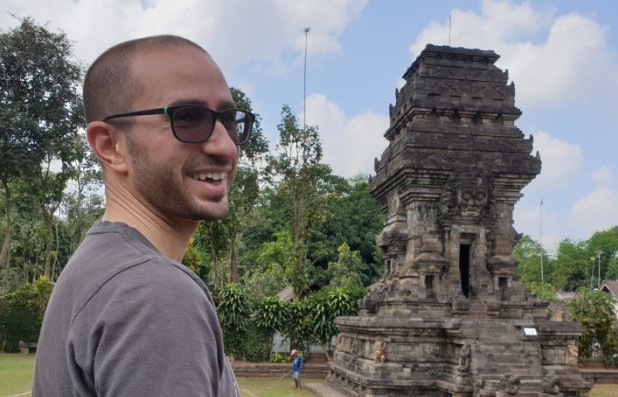Oxford research fellow claims he was sacked because Saudi backers didn’t like his bisexual ‘lifestyle’

Kevin Fogg (KevinWFogg.net)
A former Oxford research fellow has claimed that he was sacked because Saudi funders did not approve of his bisexual “lifestyle”.
Kevin Fogg, 37, will argue that he was dismissed as a result of “indirect discrimination due to his sexual orientation” at an employment tribunal next week.
He had served as a research fellow at the Oxford Centre for Islamic Studies for five years prior to his dismissal in 2018.
The centre is recognised as an “independent centre of the University of Oxford” and is not technically part of the institution.
Fogg told The Telegraph that his dismissal was both “unfair” and “discriminatory”.
Former Oxford research fellow Kevin Fogg said his bisexual lifestyle was a problem for the institution.
“As a homosexually-partnered, bisexual man, I do not comply with the preferences of the centre’s major funders, including the states of Saudi Arabia, Brunei, Kuwait, Malaysia, and the United Arab Emirates.”
Fogg, an expert in the history of Islam in south-east Asia, added: “The centre’s leadership made several references to my age, which I believe to have been coded language equivalent to calling me a ‘confirmed bachelor’.”
He said the Oxford Centre for Islamic Studies had a “culture of antagonism and intolerance” towards LGBT+ people in a witness statement.
Furthermore, Fogg said representatives from anti-LGBT+ countries are on the centre’s board of trustees, which directs “all decisions including oversight of personnel decisions”.
Turki Al-Faisal, a member of Saudi Arabia’s royal family, is the chair of trustees for the centre, while Sultan Nazrin Shah of Perak, a state in Malaysia, serves as vice-chair.
He suffered ‘episodes of depression’ following his dismissal.
After his dismissal from the centre, Fogg secured a position as director of the Carolina Asia Centre at the University of North Carolina.
He said the centre’s decision to terminate his contract impacted on his mental health. He had trouble sleeping and suffered “episodes of depression” in the aftermath.
The centre rejected Fogg’s claims, calling them “wide allegations” that had “no basis in fact”.
They said Fogg joined the centre on a fixed term, five year contract, which was extended by one year until 2018.
Furthermore, a spokesperson insisted that Fogg had been “treated very well” during his time at the centre.
“The centre does not propose to comment on the proceedings and will make no further statement about the case until after its conclusion,” the group said.

